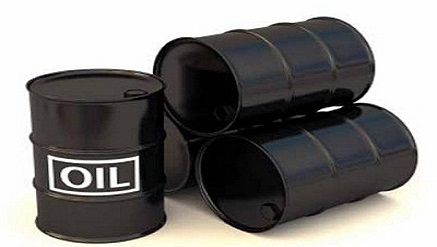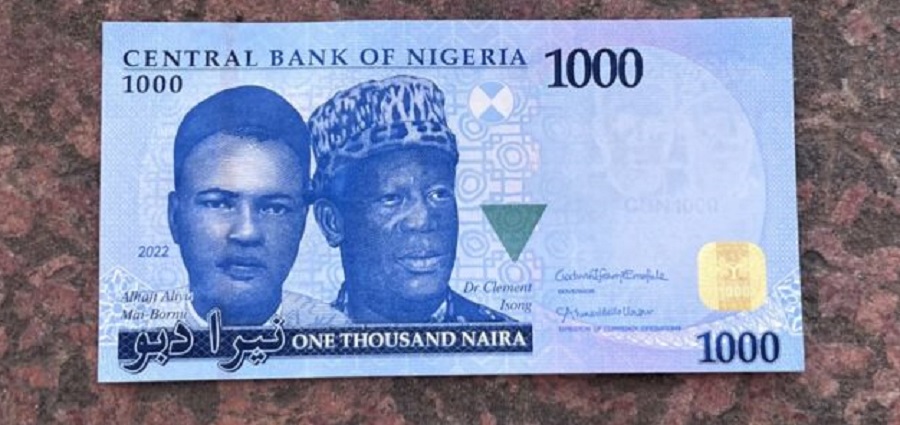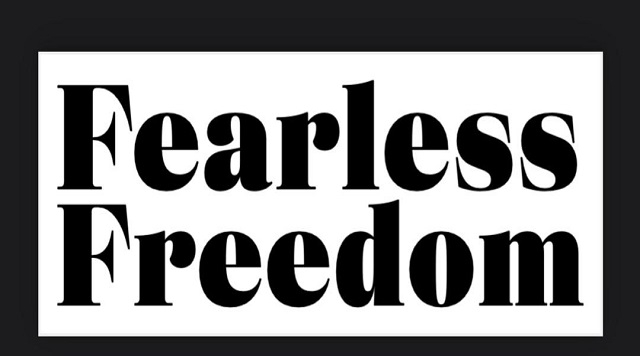General News
Victory as Shell Pays out £55m over Niger Delta Oil Spills

Oil giant Shell’s long-overdue compensation pay out to a community devastated by oil spills in the Niger Delta is an important victory for the victims of corporate negligence, said Amnesty International and the Centre for Environment, Human Rights and Development today.
Six years after two oil spills destroyed thousands of livelihoods in the Bodo area, legal action in the UK has driven Shell to make an out-of-court settlement of £55m to compensate the affected community.
The £55m will be split between £35m for 15,600 individuals and £20m for the community.
“While the pay-out is a long awaited victory for the thousands of people who lost their livelihoods in Bodo, it shouldn’t have taken six years to get anything close to fair compensation,” said Audrey Gaughran, Director of Global Issues at Amnesty International.
“In effect, Shell knew that Bodo was an accident waiting to happen. It took no effective action to stop it, then it made false claims about the amount of oil that had been spilt. If Shell had not been forced to disclose this information as part of the UK legal action, the people of Bodo would have been completely swindled.”
The wait has taken its toll on Bodo residents, many of whom had their fishing and farming livelihoods destroyed in the spill. Throughout this time they have had to live with the ongoing pollution and, without compensation, many have faced grinding poverty.
“The compensation is a step towards justice for the people of Bodo, but justice will be fully achieved when Shell properly cleans up the heavily polluted creeks and swamps so that those who rely on fishing and farming for their income can begin to rebuild their livelihoods,” said Styvn Obodoekwe, Director of Programmes of the Centre for Environment, Human Rights and Development (CEHRD).
“I am very happy that Shell has finally taken responsibility for its action,” said Pastor Christian Kpandei, a Bodo fish farmer, whose fish farm was destroyed by the oil spill. “I’d like to thank the lawyers for compelling Shell to make this unprecedented move.”
Shell has always accepted that the two 2008 Bodo oil spills were the fault of failures on the company’s pipeline at Bodo, but publically – and repeatedly – claimed that the volume of oil spilt was approximately 4,000 barrels for both spills combined, even though the spills went on for weeks.
In 2012 Amnesty International, using an independent assessment of video footage of the first oil spill, calculated that the total amount of oil split exceeded 100,000 barrels for this spill alone.
During the legal action in the UK, Shell had to finally admit that its figures were wrong and it had underestimated the amount of oil spilt in both of the Bodo cases. However Shell has still not confirmed how much oil was actually spilt.
During the legal process Shell was also forced to reveal that it had been aware, at least since 2002, that most of its oil pipelines were old, and some sections contained “major risk and hazard”. In a 2002 document Shell stated that outright replacement of pipelines was necessary because of extensive corrosion.
As far as Amnesty International and CEHRD are aware Shell took no action despite having this information years before the Bodo leaks. An internal Shell email from 2009 revealed that Shell knew it was exposed over spills in Ogoniland – where Bodo is situated; the email stated “the pipelines in Ogoniland have not been maintained properly or integrity assessed for over 15 years”.
Thousands more people remain at risk of future oil spills because of Shell’s failure to fix its ageing and dilapidated pipelines.
“Oil pollution in the Niger Delta is one of the biggest corporate scandals of our time. Shell needs to provide proper compensation, clear up the mess and make the pipelines safer, rather than fighting a slick PR campaign to dodge all responsibility,” said Audrey Gaughran.
It would be recalled that there were two oil spills occurred at Bodo in the Niger Delta in 2008, the first in August and the second in December.
Amnesty International and CEHRD have worked on the Bodo spills case since 2008, supporting the community to secure compensation and clean up.
In 2011, the people of Bodo, represented by UK law firm Leigh Day, began court proceedings in the UK against the Shell Petroleum Development Company of Nigeria.
General News
NOA Warns of Fake N1000 Notes in Circulation, How to Identify Them

National Orientation Agency (NOA) in Kwara has cautioned the public on fake N1000 notes circulating in the state.

Alhaji Abdulganiyu Dare, state director of NOA, disclosed this in a statement issued in Ilorin.
Dare emphasised the need for vigilance among residents and business owners in the state.
According to him, there is confirmed intelligence reports of syndicates flooding the area with counterfeit currency with batch numbers 364232 and 898248.
Dare said the counterfeit notes can be identified by their blurred portraits, watermarks, and irregular security features.
He urged the public to be cautious when handling large sums of money.
“The syndicates behind this crime exploit peak commercial hours in major local markets to carry out transactions with counterfeit notes.
“They target unsuspecting POS operators and merchants by defrauding them of their hard-earned money.
“NOA Kwara Directorate is committed to sensitising the public on the dangers of fake currency and the importance of verifying the authenticity of banknotes.
“The agency is working tirelessly to ensure that residents of Kwara are protected from financial scams,” he said.
While describing the crime as unpatriotic and capable of distorting the Nigerian economy, Dare said NOA would work closely with security agencies to bring the culprits to book.
The director advised residents to report any suspicious transactions or individuals to the authorities immediately.
“Together, we can build a safer and more secure financial environment for all residents of Kwara.
“By working together, the NOA and the public can prevent the circulation of fake currency and protect the financial interests of Kwara residents,” he said.
General News
NCC, IHS Towers Lead Others To NITRA-ALTON CNII & Telecom Sustainability Conference 2025

Telecom industry regulator, the Nigerian Communications Commission (NCC) and other industry operators, including IHS Towers, Digital Realty and 9mobile Nigeria, have joined the line of partners that will chart the way forward as stakeholders gather for the Maiden Edition of the CNII & Telecom Sustainability Conference 2025 being organized as a collaboration between media body, the Nigeria Information Technology Association (NITRA) and Industry advocacy group, the Association of Licenced Telecom Operators of Nigeria (ALTON).

Scheduled for August 7, 2025 in Lagos, the event, which is expected to host the Minister of Communication, Innovation and Digital Economy, Dr. Bosun Tijani, will also bring stakeholders from Nigeria Security and Civil Defence Corps (NSCDC) and the Peace Corps Nigeria, to discuss the security of infrastructure, stakeholders’ roles, and the practical implementation of the Critical National Information Infrastructure (CNII) Presidential Order.
Headlining the event, with its theme as “Telecoms Industry Sustainability and the CNII Act – Way Forward”, IHS Towers will throw light on the state of infrastructure in the country, while the Panel Session will discuss the “Role expectations of stakeholders in the implementation of the CNII Act”
Keynote speeches will come from the NCC EVC, Dr. Aminu Maida and the President of the Association of Telecommunication Companies of Nigeria (ATCON).
The Nigerian Designation and Protection of Critical National Information Infrastructure (CNII) Order, 2024, aims to safeguard critical infrastructure like telecommunications networks, financial systems, and power grids by designating them as CNII and outlining measures for their protection. This order, signed in June 2024, is an extension of the Cybercrimes Act of 2015 and seeks to reduce disruptions to these vital systems.
Some of the questions stakeholders will give answers to at the Panel Discussion include:
- How do we ensure that this Order is implemented to the letter?
- What are the roles of each stakeholder in the industry – Federal, States, Operators, Consumers, and other actors?
- Are telecom companies keying into the CNII provisions, and how?
- Are there areas worth looking into once more, or is the Order perfect as it is?
- What is the role of regulators in ensuring public compliance to the Bill?
- How do we ensure security?
- What is the place of collaboration?
- Publicity: how much of the CNII provisions are the public aware of?
- How can we sustain the growth and development of telecommunications in Nigeria?
According to the General Secretary of NITRA, Mr. Chidiebere Nwankwo, this industry collaborative event will afford stakeholders in the public and private sectors the opportunity to sit back together and review how well the CNII Order has thus far been implemented, and to re-strategise, if need be, on the way forward.
“This event is key because it will bring Stakeholders to the CNII plan to a roundtable to re-evaluate the decision, make amends and continue the journey. This has to be a periodic gathering to make the goals of this order achievable,” he said.
ALTON is the official private sector industry body for all providers of telecommunications and subsidiary services in Nigeria.
The Chairman of ALTON, Engr. Gbenga Adebayo and the Chairman of NITRA, Mr. Chike Onwuegbuchi will be on hand to welcome industry stakeholders.
General News
Fearless Freedom Launches to Tackle Inequality and Champion Global Economic Inclusion

Fearless Freedom, a bold new global advocacy initiative focused on ending economic inequality and expanding economic opportunity, officially launches today, 2nd August, 2025.

Backed by the founder of Fearless Fund, the first venture capital fund in the U.S. built by women of color for women of color, this new chapter builds on a legacy of breaking barriers and driving inclusive progress.
The launch of Fearless Freedom comes nearly one year after the dismissal of a federal lawsuit that challenged the organization’s efforts to empower underrepresented communities. The case, which drew national attention, was filed on August 2, 2023, and dismissed permanently on September 11, 2024.
Fearless Freedom is not just an advocacy; it is a global movement for visibility, justice, and financial equity. Through storytelling, policy conversations, and creative programming, Fearless Freedom is reclaiming space, spotlighting the real challenges, and championing the people building powerful solutions.
“Fearless Freedom is our global declaration, a refusal to be silenced, erased, or sidelined,“ said HM Queen Wa Arian Simone, CEO of Fearless Fund. “We’re not just funding change anymore, we’re amplifying the voices that have always driven it. This initiative is about power, presence, and rewriting the rules of who gets seen, supported, and heard.”
“August 2nd was once about legal resistance. From now on, it marks something else: a day of fearless expression and global visibility,” she added.
As a global advocacy initiative, Fearless Freedom will spark meaningful dialogue around economic inclusion, inviting communities to reflect, learn, and speak out against financial inequality, all through creative expression and powerful storytelling.

 Telecom3 days ago
Telecom3 days agoHistory as MTN Nigeria Becomes First to Hit ₦10 Trillion Market Cap @ NGX

 Telecom3 days ago
Telecom3 days agoMTN Nigeria’s CAPEX Soars Nearly 300 Percent to ₦565.7Bn in Q1 2025

 Telecom3 days ago
Telecom3 days agoMTN Nigeria Celebrates Super Falcons with ₦150 Million Reward After WAFCON Triumph

 General News3 days ago
General News3 days agoNigeria Sends Egusi, Others to Space @ NASA’s Crew-11 Mission Launch

 Telecom3 days ago
Telecom3 days agoVitel Wireless Rolls Out 50,000 SIM Cards, eSIMs

 General News3 days ago
General News3 days agoAfDB Approves $46m to Transform Healthcare in Sokoto State

 General News3 days ago
General News3 days agoNITDA DG says Nigeria’s Digital Economy Will Empower Citizens, Bridge Divides, and Drive Unity

 News3 days ago
News3 days agoExperts Caution e-commerce Operators on Eco-friendly Materials
























